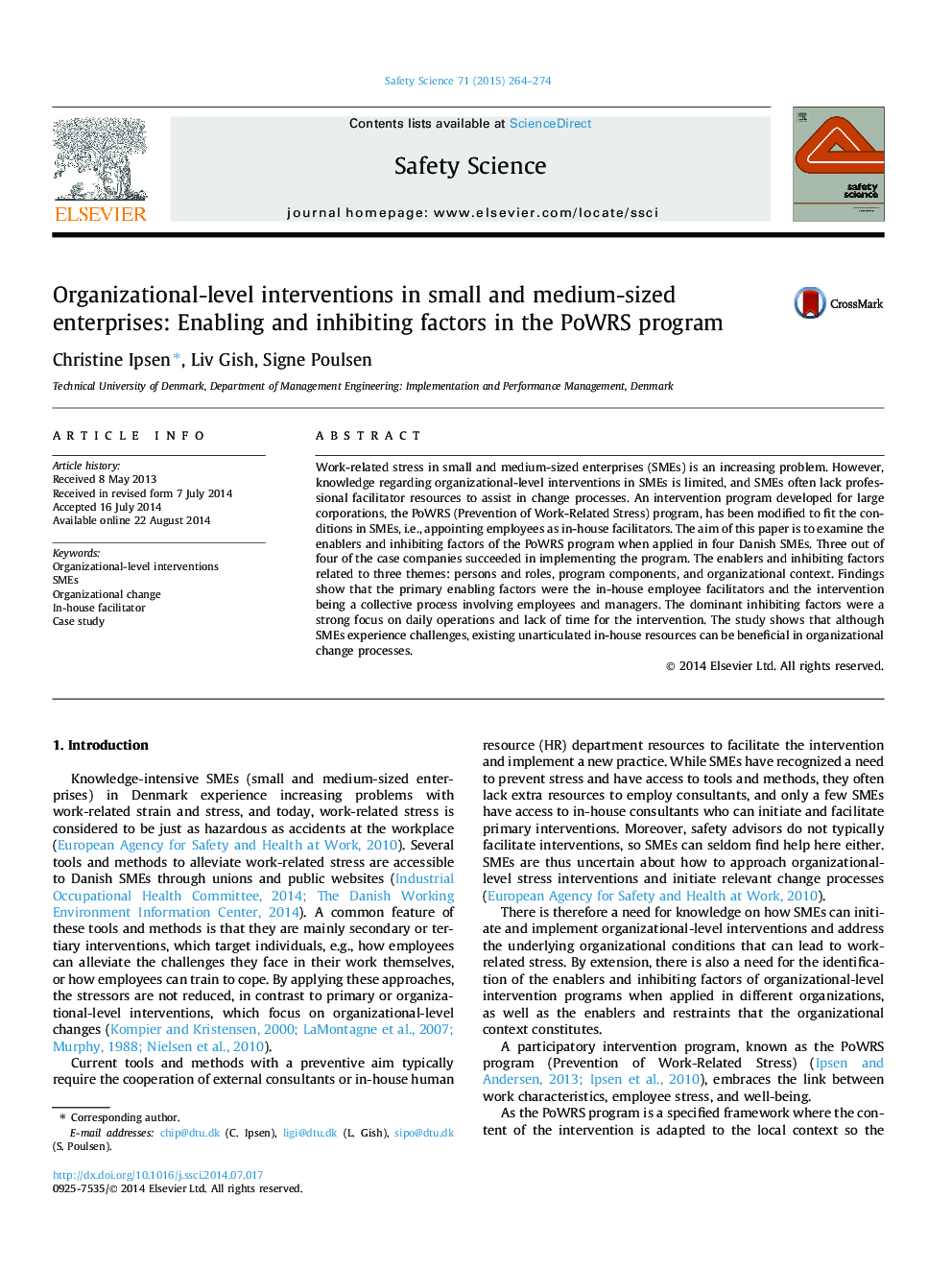| Article ID | Journal | Published Year | Pages | File Type |
|---|---|---|---|---|
| 10374332 | Safety Science | 2015 | 11 Pages |
Abstract
Work-related stress in small and medium-sized enterprises (SMEs) is an increasing problem. However, knowledge regarding organizational-level interventions in SMEs is limited, and SMEs often lack professional facilitator resources to assist in change processes. An intervention program developed for large corporations, the PoWRS (Prevention of Work-Related Stress) program, has been modified to fit the conditions in SMEs, i.e., appointing employees as in-house facilitators. The aim of this paper is to examine the enablers and inhibiting factors of the PoWRS program when applied in four Danish SMEs. Three out of four of the case companies succeeded in implementing the program. The enablers and inhibiting factors related to three themes: persons and roles, program components, and organizational context. Findings show that the primary enabling factors were the in-house employee facilitators and the intervention being a collective process involving employees and managers. The dominant inhibiting factors were a strong focus on daily operations and lack of time for the intervention. The study shows that although SMEs experience challenges, existing unarticulated in-house resources can be beneficial in organizational change processes.
Keywords
Related Topics
Physical Sciences and Engineering
Chemical Engineering
Chemical Health and Safety
Authors
Christine Ipsen, Liv Gish, Signe Poulsen,
